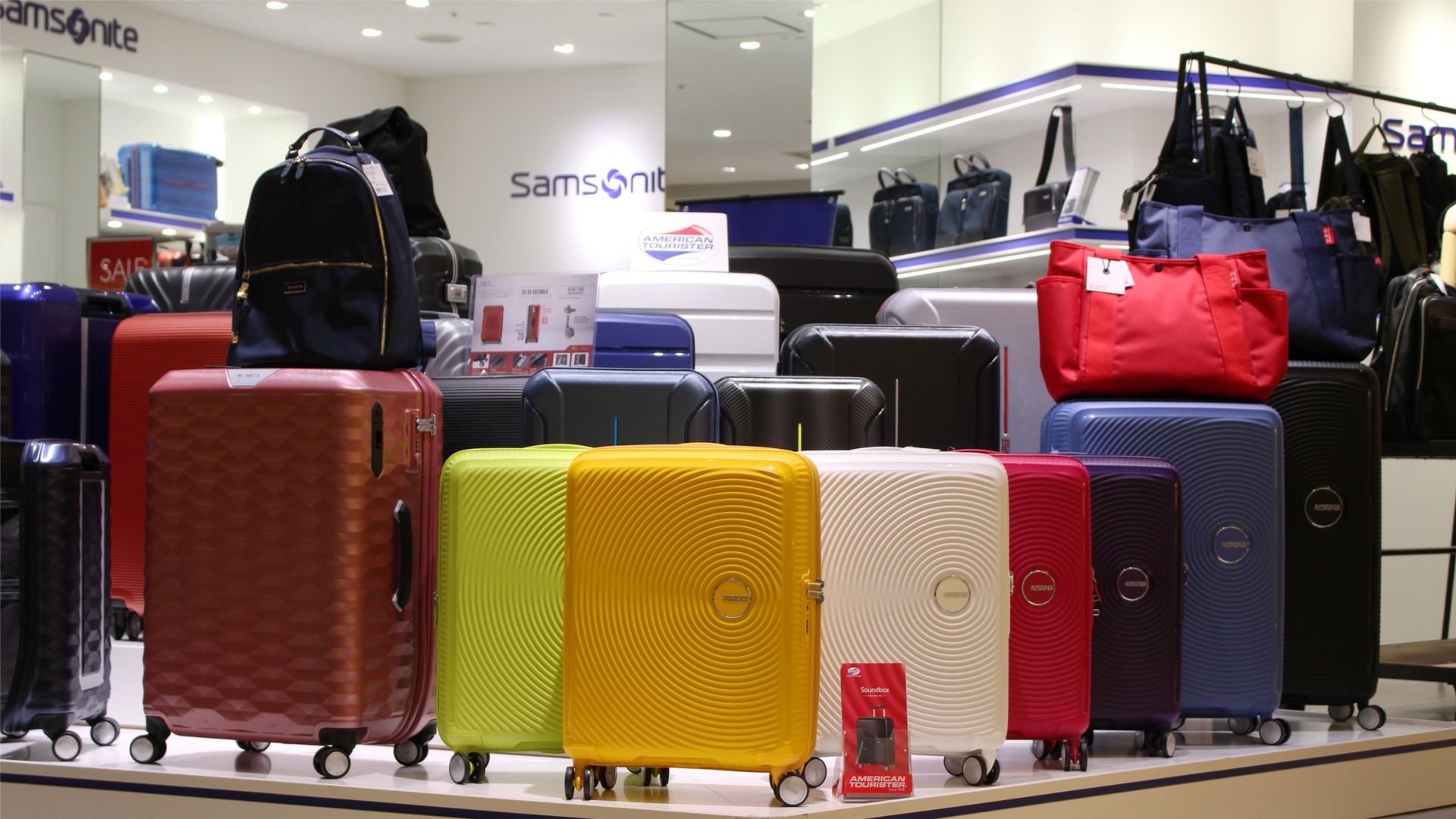American luxury retailers that are dependent on Chinese tourism have had a rough ride over the past year, and brands like Tiffany & Co. have pointed to a decline in Chinese tourist shopping as a reason for weaker revenue growth in recent quarters. Despite this decrease in tourist traffic from China, the Massachusetts-based luggage and travel accessories brand Samsonite announced at the end of February that it would now accept Chinese mobile payment options Alipay and WeChat Pay at select U.S. stores, in destinations popular with Chinese travelers, including New York City, Las Vegas, and Los Angeles.
Overseas retailers who accept Chinese mobile payments tend to see an increase in sales, according to a recent report co-authored by Alipay and Nielsen, so this may seem like a logical move for the over hundred-year-old company. But will this help the luggage brand overcome the overall tourist shopping slump?
Luggage sales to Chinese travelers are generally dependent on their shopping habits, and some tourists buy enough products overseas to warrant the purchase of a new suitcase. However, recent reports along with company earnings releases have indicated that shopping is less of a priority for tourists from China in many locations, particularly in the States. In addition, the Chinese government’s crackdown on daigou shoppers — people who make luxury purchases abroad at a lower price and resell the products in China to avoid taxes — has hindered these mass purchasing habits. Meanwhile, slowing economic growth in China isn’t helping to positively influence purchases abroad.
On top of declining tourist shopping, there’s the fear that overall arrival numbers will decrease during 2019. Chinese arrivals to the U.S. were flat in 2018 amid trade and diplomatic tensions between the nations, even though overall growth in Chinese outbound tourism grew and spending was strong (Chinese travelers made up about 3 percent of all arrivals to the U.S. last year but accounted for 11 percent of international tourist spending).
Samsonite is banking on more Chinese purchasing its products abroad since it fears declining sales in China because of the ongoing trade war between the U.S. and China. “We saw a little bit of uncertainty in China leading into the second half of the year,” said Samsonite CEO Kyle Francis Gendreau in August as the company’s products have increased in price in the country due to its retaliatory tariffs.
If Chinese travel trends to the U.S. continue to decline, Samsonite may not see much benefit from its mobile payment strategy, at least in the short term. The implementation of the plan, however, remains a viable strategy for the long term.



